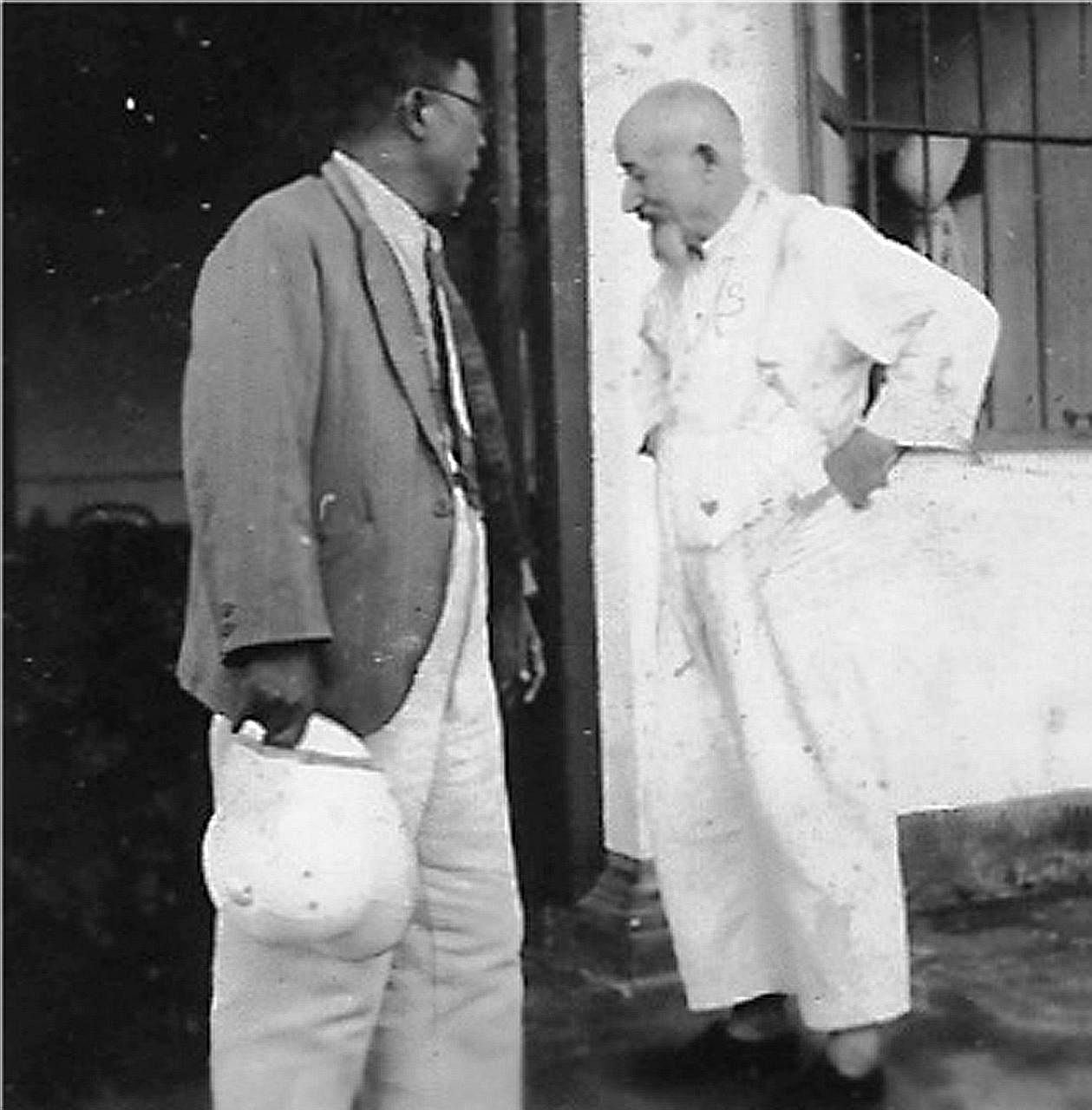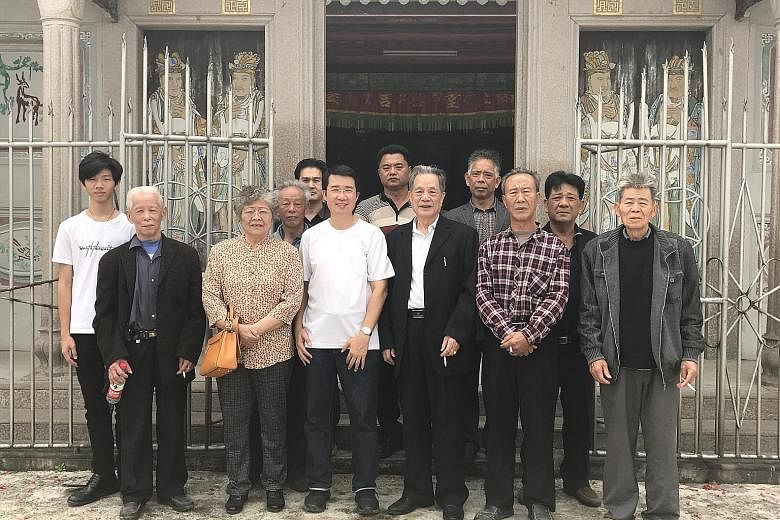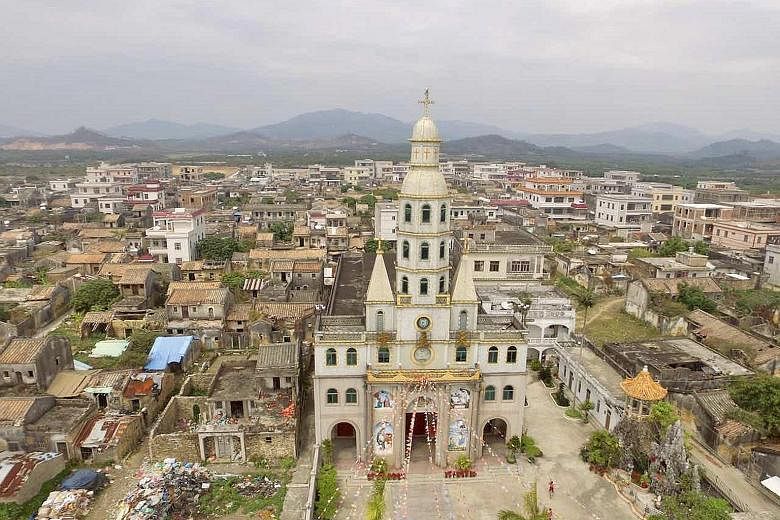Reverend Father Edward Becheras, a Teochew-speaking French missionary priest, is widely known and credited for the founding of Catholic High School in 1935.
But the person who set in motion the setting up of the school was Teochew Catholic businessman Paul Lee, who arrived in Singapore in 1916 at the age of 31 and eventually became president of the Chinese Catholic Action Society.
Mr Lee, noting that there was an English mission school for boys - St Joseph's Institution set up in 1852 - was keen to set up a Chinese mission school.
The rarely told backstory of Catholic High's founding appears in a new book titled My Maternal Roots. It was launched on March 30 at a bicentennial event and supported by, among others, the Genealogy Society Singapore and National Heritage Board.
Its author is Mr Lee's great-grandson, Mr Cyprian Lim.
Mr Lim found out that then Catholic Archbishop Adrien Devals was displeased that articles in the Nanyang Siang Pau and Sin Chew Press newspapers referred to Mr Lee as a "Catholic leader".
Mr Lim, 55, said: "In Church hierarchy, my great-grandfather was a layman and the Archbishop believed it was only proper that Father Becheras, as the school's supervisor, was credited for the school's founding."
Records show that Mr Lee was also responsible for interviewing candidates for the principal's post. His contact from Swatow, now called Shantou, in China, Mr Yao Kwok Wah, who was bilingual, was hired and ran the Sino-English institution from 1935 to 1950.

-
Genealogy society to back research by more ethnic groups
-
As Singapore commemorates its bicentennial, the Genealogy Society Singapore is looking for Singaporeans who are interested in uncovering their family history.
Society president Ng Yew Kang, 79, hopes researchers from Singapore's key ethnic groups will step forward.
"The purpose of the society is to encourage Singaporeans to be aware of their family history and to compile it for the sake of their current and future generations. These individual family stories constitute the collective history of Singapore," he said.
"Therefore, we would very much like to support the research of representatives from Indian, Malay, Peranakan and Eurasian families to make it a truly Singaporean venture."
Mr Ng said half the funds for the projects that the society is encouraging will come from the authors and their families.
The society will support authors in applying for government grants and finding sponsors and printers. It will also help to organise book launches and distribution.
It recently backed the publication of the book My Maternal Roots, which traces the story of a Teochew Catholic family.
Founded in 2012, the society has also conducted public talks on tracing genealogies.
Mr Ng said the society also encourages families to donate their genealogy books from China to the National Library.
"Since they are written in classical Chinese, Singaporeans might not necessarily understand the text... However, these books are a rich repository of family history."
Melody Zaccheus
Few Catholic High students and alumni know this slice of history, added Mr Lim, who uncovered the story after referring to oral history accounts from members of his family and the school's alumni.
He also looked at the school's archive and records from the Catholic Church of Singapore.
Mr Lim comes from a line of devout Catholics from the village of Peknay in Guangdong, and his book details some of their stories.
It also chronicles the history of an important Teochew Catholic community that fled from Swatow to Singapore in 1927 and 1928 to escape persecution and political unrest after the establishment of the Chinese Communist Party in 1921.
Mr Lim said he embarked on the book project as he was always curious about his ancestors' deep-rooted faith and service to the community.
For instance, Mr Lee supported the Swatow refugees financially and in kind during their early years here, using his own money to buy materials to set up a makeshift chapel for them. The chapel was the predecessor of the Church of St Anthony in Woodlands.
The other pious Catholics in his family include his great-grandaunts, who chose to be single to serve the Church in Peknay, and uncles, who lived in Malaysia and Singapore and were priests.
The former primary school English teacher said: "My mother, using a box full of photographs, used to tell me stories about these great ancestors of ours. Over time, I grew more curious and started documenting our past."
His ancestral village of Peknay, which he visited in 2017, is home to 3,800 or so dwellers today. All of them are Catholics and no longer persecuted by the authorities.
Mr Lim said the project has shed light on his past in ways he never imagined. "I heard the same stories my mother told me as a child from the lips of my Chinese relatives. For instance, they corroborated her account of one of my great-grandaunts - Lee Kheng Gnor - a devout Catholic who died for her faith."
He recounts in his book that the communists, on learning that she was welcoming orphans into her home, ordered her to stop it.
She refused and was banished to live in an abandoned toilet.
"The authorities tied her thumbs tightly together with a cord and left her to die," he said.
Mr Lim, who took three years to complete the book, encourages Singaporeans to embark on their own journey to discover their roots.
He said: "If you are Chinese and know the names of your grandparents and their ancestral villages, chances are you will likely be able to trace your lineage further back. Each Chinese village is usually home to an association of the same surname and many of them keep their genealogy books.
"My journey uncovered maternal genealogical records that were spared from the flames of Mao Zedong's great purge, revealing a lineage spanning 20 generations."



